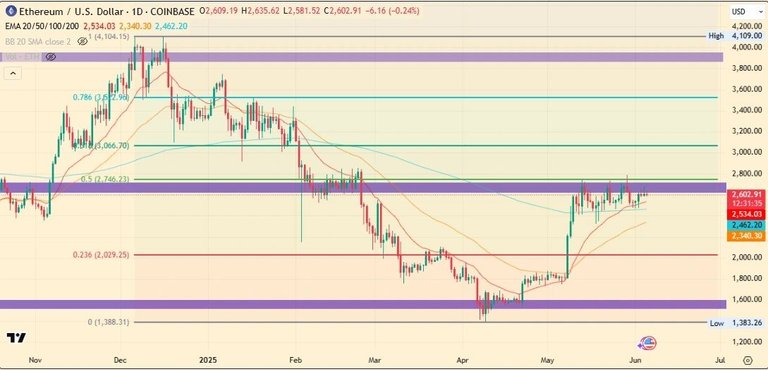Institutions' fear of losing Bitcoin could turn into a problem
As large corporations pile more and more Bitcoin into their portfolios, a new report from Standard Chartered issues a stark warning that the trend could backfire on the cryptocurrency market as a whole.
In a report published Wednesday (6/4/2025), Geoffrey Kendrick, head of digital asset research at Standard Chartered, noted that many new companies entering the Bitcoin market are buying in large quantities and at high prices. If the market were to undergo a sharp correction at some point, they could potentially turn into panic sellers, pushing prices down further.
“Right now, things look rosy because corporate buying is still driving the price of Bitcoin higher,” Kendrick said. “But that could reverse at any time.”
Corporate Bitcoin Holdings Surge
Standard Chartered notes that the number of companies holding Bitcoin on their balance sheets has doubled in the past two months, with a total of nearly 100,000 BTC. This surge has certainly contributed to Bitcoin’s recent rally.
However, Kendrick says that most of these companies aren’t necessarily strong enough to withstand the volatility. Many of them entered at a high price, unlike Strategy (formerly MicroStrategy), which is known for diligently accumulating at lower prices.
He says that if Bitcoin’s price falls below $90,000, half of the new companies will suffer unrealized losses. Worse still, if the price falls 22% from the average purchase price, some may be forced to sell massively to avoid more severe losses.
Kendrick also wonders how much pressure companies can withstand before finally giving in and selling all their Bitcoin. Compare this to what happened in November 2022, when FTX crashed. At the time, Bitcoin fell from $31,000 to $15.50.
However, Strategy remained calm and did not sell any cryptocurrency. One reason was that there was no spot Bitcoin ETF yet, and Strategy was the only alternative exposure to Bitcoin for institutional investors at the time.
“But now the conditions are different,” Kendrick explained. “There are spot ETFs, and these new entrants do not have the strategic position that Strategy has. We doubt they can survive a 50% price drop from their entry point.”
Additionally, the Standard Chartered report states that the 61 companies they track hold Bitcoin solely as treasury assets, not because they are part of the cryptocurrency industry like miners, exchanges, or tech companies like Tesla.
Together, these companies currently control 673,897 BTC, equivalent to about 3.2% of the total Bitcoin supply, which is limited to only 21 million coins. Although they do not constitute the majority, the collective decision of this group can trigger a rather large market movement, especially if there is sudden selling pressure.
